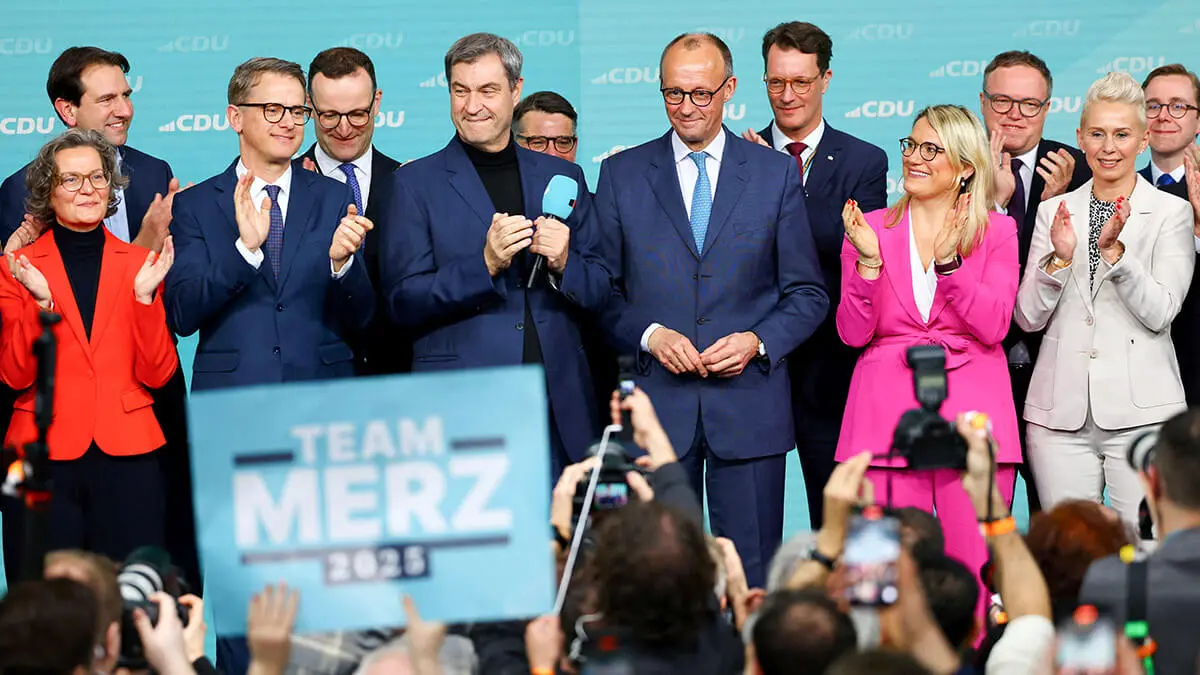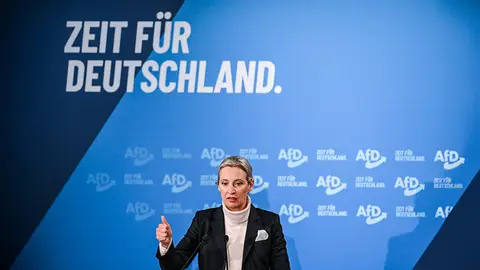Germany wants change

The victory of his Christian-Social coalition (CDU/CSU) has nevertheless been below expectations, which were set at comfortably exceeding 30% of the almost 60 million voters, the highest figure since reunification 35 years ago.
Merz, who was Angela Merkel's great rival within the party, has reiterated two of his most emphatic and repeated statements from the election campaign as soon as his victory was confirmed: that there is an urgent need to resolve the two most serious problems facing the country, immigration and the economy, and that under no circumstances will he form a coalition with the far right Alternative for Germany (AfD) party led by Alice Weidel.
This party has not only doubled the votes it obtained in the 2021 elections, exceeding 20% of the vote, but also, if added to the 29% of the Christian Democrats, they would account for half of the electorate, exhibiting a resounding majority in a Bundestag of 630 seats.
To emphasise his firm refusal to form that conservative coalition, the future chancellor argues that the AfD ‘wants the complete opposite of what we want, and therefore it is not possible to govern with them’.
The AfD leader did not make a fuss in her response, limiting herself to calling on Merz to explain to the country why he prefers a coalition with the left. Asked again how she would view a three-way coalition between the CDU, the Social Democrats of the SPD and the Greens, Weidel replied that, in that case, there would be early elections again, predicting that her party would then also beat the Christian Democrats.
As for the Social Democrats, the SPD's collapse has been so spectacular, going from the 25.7% that gave it victory in 2021 to the current 16%, that it has been relegated to third place in the parliamentary chamber. The defeat has been so severe that Olaf Scholz has ruled himself out of the running to lead his party in possible negotiations with Merz with a view to a hypothetical Grand Coalition (Groko, in popular parlance).
It is clear that German voters have shown their desire for a change in the policies led so far by the Social Democrats, in partnership with the Greens and the liberals of the FDP.
All three have suffered a huge setback, which therefore marks Germany's shift to the right, tempered by the 8.5% of votes won by The Left (Die Linke), which is made up mostly of post-communists from the former GDR. On the other hand, it seems that, by not obtaining the minimum of 5% of the votes, both the liberals of the FDP and the neo-communists of the Sahra Wagenknecht Alliance (BSW) are left out of Parliament.
Against this backdrop, the next chancellor, Friedrich Merz, does not have many alternatives. He claims to want to design a policy that satisfies all Germans, a desire that would be considerably diminished if he excludes from it the twelve million Germans who voted for AfD, which US President Donald Trump in turn considers a victory of his own: ‘As in the United States,’ Trump wrote in a message on his social network, ’the people of Germany have grown tired of the common-sense-free agenda, especially on energy and immigration, that has prevailed for many years.’
The path that Merz takes will set a course for the European Union, already facing the enormous challenges and urgencies posed by Trump himself, Russian President Vladimir Putin and the powerful leader of China, Xi Jinping. Accustomed as Germany is to the long post-election negotiations to form coalition governments, this time there seems to be less time to draft meticulously detailed agreements.
Germany needs to rapidly change a paradigm that no longer exists: that of cheap energy from Russian oil and gas, and that of a great exporting power based on unquestionably good value for money.
And, as the driving force of Europe, it will have to lead, favour and support the changes that the EU also needs to recover, even partially, the lost ground both to compete and to return to the table where the big players make the decisions that decisively affect the world. A table from which it was abruptly thrown out in the bilateral US-Russia meeting, held in the Saudi Arabian capital, to decide the fate of Ukraine, which is also, to a large extent, the fate of Europe itself. US-Russia meeting, held in the Saudi Arabian capital, to decide the fate of Ukraine, which is also, to a large extent, the fate of Europe itself.


